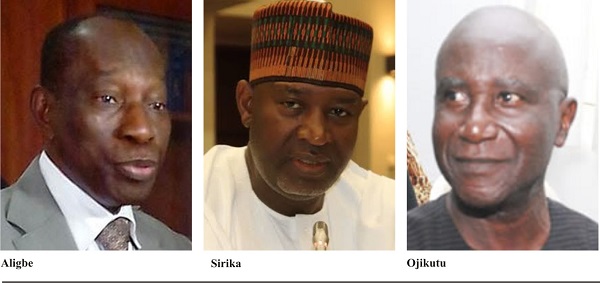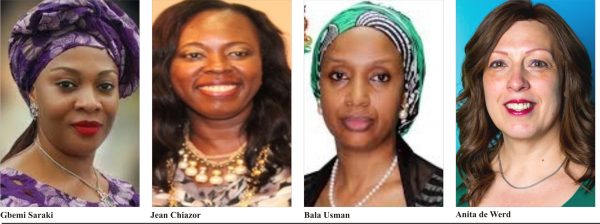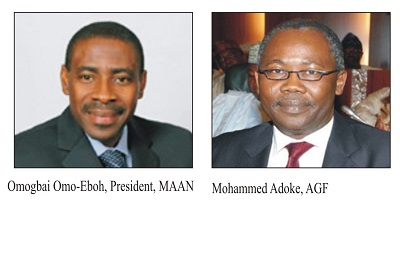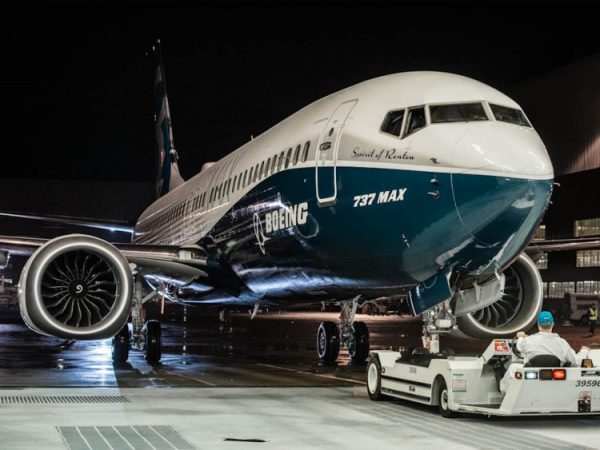PERISCOPE
Bi-Courtney/FAAN Concession Rift: Experts Proffer Solutions
By Yusuf Odejobi
Over the years, Public-Private Partnership (PPP) has gained global recognition as the key vehicle for the provision of necessary public projects due to government’s inability to fund the infrastructural needs of the people.
Nigeria is not different as the governments at national and sub-national levels have adopted this model to develop public projects, especially commercial infrastructure like roads, seaports, airports, rail systems, and healthcare system.
It was on this premise that the federal government, through the Federal Aviation Authority of Nigeria (FAAN), entered into a concession agreement over the building and operations of MM2 with Bi-Courtney Aviation Services Ltd. However, the agreement has been the subject of disputes, litigations and endless conflicts between the federal government and the concessionaire and both parties haven’t been able to address the conflict till date.
Bi-Courtney claims an inexplicable extension of the agreement from 12 years to 36 years, while FAAN insists that the duration of the agreement has been fully spent.
While the seamlessly unending battle lingers on, questions regarding the said agreement remained unanswered. Why the extension? Why a whopping 24 additional years to the initial period? Does a Minister have the power to grant the extension claimed by the concessionaire? Is it the case that Bi-Courtney was unable to recoup its investment within the twelve years initially agreed by parties? Who are the people that signed the agreement? Was there compliance with due process in giving the extension? How did recent activities by the federal government impede Bi-Courtney’s business projections?
Also making available the key contract documents like the initial contract document and the claimed extension document would have enabled the public to compare both documents and find the rationale for the extension of the agreement.
Industry stakeholders have however posited that the lack of a strong legal and regulatory framework, inefficient dispute settlement mechanism, corruption, the non-accessibility of contract documents and lack of disclosure are some of the reasons the concession agreement between Bi-Courtney and FAAN remains subject to avoidable conflict.
They added that it is imperative to resolve the crisis as it doesn’t speak well for the nation’s image, especially as the government is embarking on concessioning more airports in the country.
Speaking on the way forward with MMS Plus newspaper, Chief Executive Officer, Belujane Konzult, Mr. Chris Aligbe said that government has to agree to sit down and resolve the dispute in the interest of everybody.
“FIrst, Babalakin must fundamentally be ready to shift. The concession agreement he entered in the past have all been faltered. Some examples are the Federal Secretariat and the Lagos-Ibadan express road. He should begin to ask himself why are all these faltering from one change of government to another? He must drop his legal toga. Even if 20 courts of law affirm that this is the situation and the federal government thinks the judgement is unfair, they’ll act in that manner that the judgement is unfair. Many people in the industry believed the judgement is unfair.”
Explaining the processes that culminated in Bi-Courtney getting the airport project, he explained that Royal Sandanton was the initial company that won that concession under the former President Olusegun Obasanjo but at some point, the federal government said Royal Sandanton cannot mobilize funds to meet the target, so, it was given to the second bidder which was Stabilini Visinoni (SVL) before it transformed into B-Courtney Limited (BCL).
He said that the initial agreement which was inherited by Bi-Courtney was properly executed with Royal Sanderson for 12 years. With everything calculated, the money that will be spent will be recovered fully in 10 years while the remaining two years to generate profit.
His words: “After the authority of Bi-Courtney went to South Africa, they saw a design, redesigned the project and took it to Obasanjo for approval. Meanwhile, it didn’t pass through FAAN to go to Obasanjo, the car park wasn’t part of the design of the airport, the airport is supposed to be sitting where the car park is.
“With the approved design he started constructing, FAAN made efforts to enquire but it was blocked and Bi-Courtney continued the construction. The original design was smaller and didn’t have the hotel, conference facilities, mono rail, etc.”
According to him, Babalakin having realised he wasn’t going to recoup his money under 12 years couldn’t approach FAAN because he hasn’t involved them in the change of the design. But, with his influence, he went to the Minister and sought his approval for 36 years hoping that the President then would accept but Obasanjo rejected it.
Aligbe noted that part of the clause in the original agreement stated that no other airport should be developed within the same circumstances of MM2 until after 12 years. While Babalakin sought to extend the concession to 36 years, the same clause was added to it which further led to resistance from the government.
“People are saying you cannot say no development should go on around you until after 36 years, it is too long a time in a country where aviation is attractive to investors,” he added.
In the same vein, the Secretary-General of the Aviation Safety Round Table Initiative and Chief Executive Officer, Centurion Securities, Group Captain John Ojikutu (Rtd) opined that for the tussle to end and avoid future occurrence, the federal government should concession all the terminals.
He stressed that Nigerians when in government are the ones making things difficult and hurting fellow Nigerians because they believe they won’t be there for long.
“When situations like this come up, it’s always within the government. Port-Harcourt refinery, for example, the same government that gave Bi-Courtney MM2 sold a refinery to Dangote in Port Harcourt and immediately the government changed they took over the refinery from him and paid Dangote back his money. Why don’t they do the same to Babalakin at that time before it erupted into this? At the time MM2 was concessioned, how much were they expecting from Babalakin as revenue? What’s the ratio of sharing? But all these things are not written everybody is fighting for the number of years,” Ojikutu said.
He added that those who signed the agreement in 2007 have collected their own money and gone, their successor will come, do the same and that the way it’ll continue till the 36 years is completed.
“Babalakin is a Nigerian and those in the Ministry are Nigerians. The documents they signed, were on behalf of Nigerians. Consequently, these documents shouldn’t be hidden.” Ojikutu queried.
Meanwhile, the Director, Press and Public Affairs, Ministry of Aviation, Mr. James Odaudu stated that when the concession was done then, the legal and administrative framework was not really in place.
He added that for the federal government to give legal backing, supervise and regulate future PPP projects gave birth to Infrastructure Concession Regulatory Commission (ICRC).
Odaudu pointed out that ICRC now regulates every concession agreement with laid down processes where the parties involved in the PPP must follow ICRC’s regulations at every stage.
As this rift lingers, aviation observe and potential investors in airport concession have become weary of the hardships and misconceptions surrounding agreements entered with the government. While the concessionaire has been accused of not making returns to the government, findings show that the federal government through FAAN approved new projects that affected the profit margins and projected earnings of the concessionaire.
Perhaps, it is time for a crucial, factual and beneficial discuss between both parties. The conflict has lingered for too long without any benefit to either party.






